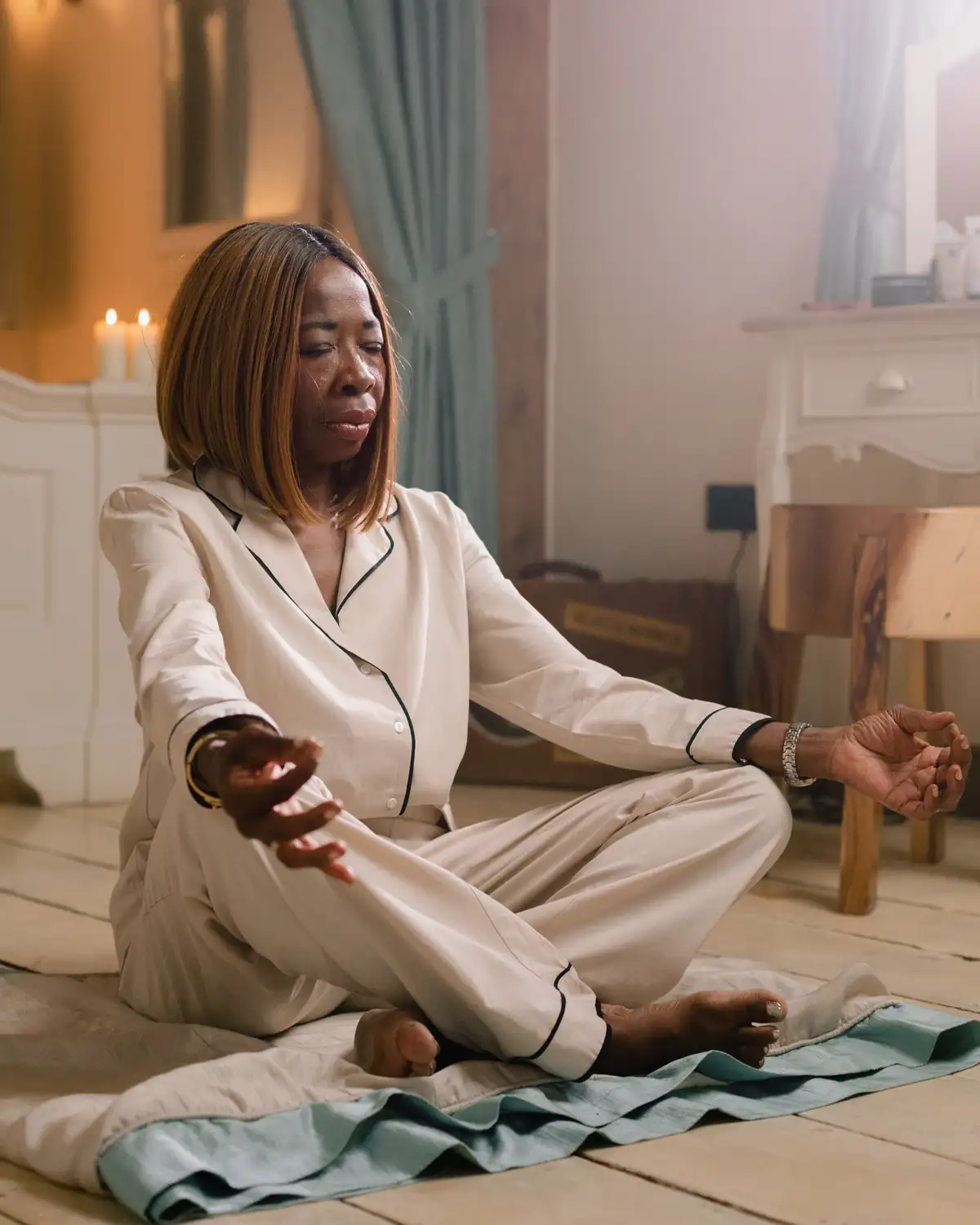What is meditation
Meditation is the mental practice of focus, where the mind is alert, and the body is relaxed. It is more than just lying in a relaxed state. It is about cultivating the mind to gain inner harmony, balance and peace. It is about “being” in the state of being rather than doing.
What kind of misconceptions do people have about meditation?
People often think it is difficult to meditate. They find it difficult to empty their minds as they spend most of their lives rushing around and not living in the moment. It is not difficult to do; in fact, it is pretty simple to do. For example, body scanning is a beautiful way to start your meditation practice. This involves lying still, deep breathing, and noticing any tensions in the body. Once you locate these tensions, you can simply send loving energy to that area.
Why is breath vital in the meditation process
The most important thing to get right when learning to meditate is the breath. For your body to become completely relaxed, deep breathing is necessary to calm the mind and body, making you more receptive to mental focus and allowing imaginary thoughts to filter through. You can say to yourself silently, “I breathe in peace” and “breathe out stress” It really is that simple.
What is a common occurrence when beginning to meditate
Falling asleep during meditation is a very common occurrence. When we are learning to meditate, we are looking for a balance between focus and relaxation, and in the process of learning, we can inevitably drift off. We can stay alert by:
- Meditating sitting up rather than lying down
- Avoid meditating on a bed as for most people, and it is a signal to sleep
- Meditating first thing in the morning
- Opening windows to allow fresh air and oxygen will help to stay alert
- Avoiding eating a big meal beforehand
It is important not to become discouraged if this does happen. With anything new, it just requires practice. You can start by trying it for 5-minute meditation and then slowly build it up the time, and before you know it, you will be able to achieve a 20-minute meditation with ease.
When beginning a meditation session, what should you pay attention to
It is essential to create a “Sacred Space” whilst meditating: this sets the scene and will make the meditation experience more effective. The general area of your space should be calming and pleasurable. You can use aromatherapy diffusers, incense sticks and candles to create an ambience to your meditation area. Soothing music can also help develop a sense of calmness in the atmosphere.
Comfort is also another important factor, paying close attention to:
- Seated area – cushions and support
- Posture – back straight
- Warmth- cosy but not too warm as you may fall asleep
- Fresh air – which encourages deep breathing
- Water – helping with hydration
What are the benefits of Meditation?
- Reduced stress: Meditation may decrease stress. It also can improve symptoms of stress-related conditions, including irritable bowel syndrome, post-traumatic stress disorder and fibromyalgia.
- Improved memory: Better focus through regular meditation may increase memory and mental clarity. These benefits can help fight age-related memory loss and dementia.
- Increased attention: Meditation helps with attention span.
- Enhanced willpower: Meditation develops the mental discipline needed to avoid bad habits.
- Better sleep: Meditation can shorten its time to fall asleep and improve sleep quality.
- Less pain: Meditation can reduce pain and boost emotion regulation. Together with medical care, this may help treat chronic pain.
- Lower blood pressure: Blood pressure decreases during meditation and over time in people who meditate regularly. This can reduce strain on the heart and blood vessels and help prevent heart disease.
- Less anxiety: Regular meditation helps reduce stress and related mental health issues like social anxiety, fears and obsessive-compulsive behaviours.
- Less depression: Meditation can help reduce the occurrence of depression.
- Greater compassion: Meditation can help you better understand yourself, find your best self, and increase positive feelings and actions toward others.
Have a little play with and in our next blog, and we will look at meditation techniques. HAPPY MEDITATING !!!



